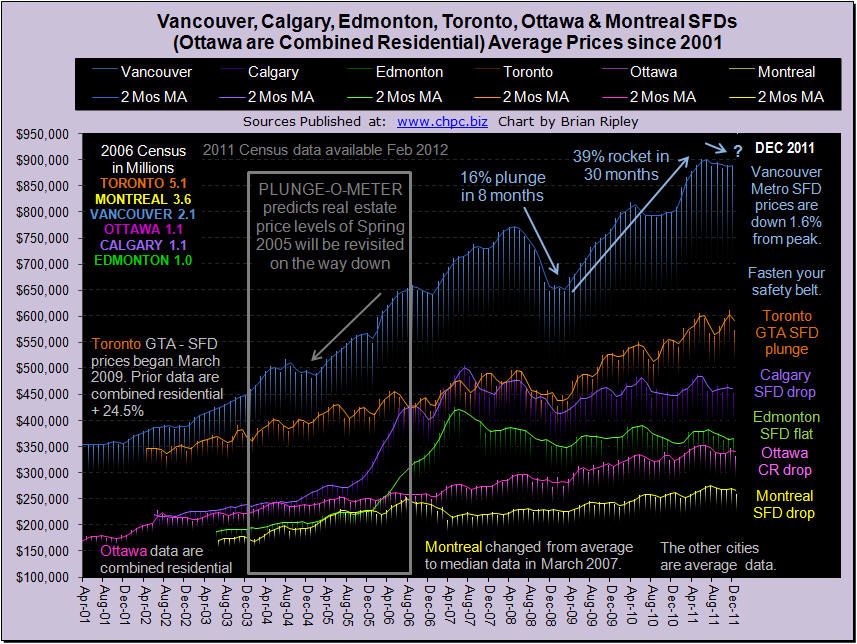Personal Finance
Dustan Woodhouse was one of the six Personal Finance workshop presenters at this year’s World Outlook Financial Conference. As the world markets reel from one debt disaster story to another Dustan discussed the practical realities, pitfalls and opportunities of personal debt in the days ahead.
To see Dustan’s complete PowerPoint presentation – CLICK HERE
For more information contact him at www.ourmortgageexpert.com .

When selling a home (or anything else for that matter), the marketing effort must be coordinated on all fronts. It also must be superior to the competition. This is especially true in a buyers’ market where the homes sitting on the market seemingly outnumber the potential home buyers. In such an environment, you must lift your home out from this crowd and highlight it in the best way possible. You must out-think the competition.
So, the market is off by 50 per cent. So what. It’s still four times larger than it was in 1982. The key is to get your property placed into the 50 per cent which sells now.
All good marketing efforts begin life as a sound, basic plan and then evolves to fit the particular property and situation. Cut from whole cloth and then tailor-made, such a plan will incorporate innovative new ideas and “rearrange” old ones.
Here then, are a few of these ideas:
1. Select a Quality Realtor: Based on my travels around the world and as president of both Royal LePage and NRS National real estate companies, I believe British Columbia and Alberta are home to some of the most qualified, professional realtors in North America today. But there are also some who are little more than “order takers” who literally can’t properly write out a contract, much less have the hard-won knowledge needed to position your home in the most appropriate and effective way for your particular market. So how do you find such an experienced, market aggressive realtor?
Ask around. Check with friends or trusted associates and get some names. Experienced names. When selling in today’s market, you need to be in the hands of a practicing “doctor” and not someone eager to practice on you.
Focus in the three best referrals, ask each of these realtors to come out, have them put together a marketing evaluation and then give you his/her specific action plan as to what he/she will do to sell your home. Make sure it’s in writing. (If the realtor is “too busy” to physically come and view your home…well, you’ve just eliminated one name from your list.) Remember: realtors come in a couple of basic flavors. While there are always exceptions, in general a “low-key” yet thorough realtor is best when it comes to helping you buy a home; his or her pragmatic knowledge will help keep your feet firmly on the ground. When selling a home however, look for a high-energy, dynamic realtor whose enthusiasm might be “infectious” enough to enthuse a potential buyer.
The market evaluation should compare your home with at least three currently active competitive listings, three recent competitive sales and three competitive and now inactive listings which didn’t sell. Drive over and check out these benchmark properties yourself to ensure the realtor has put your home in the right “ballpark”. If you disagree, find out the reasoning as to why the realtor has so placed your home. The reasons could be good ones indeed. (Or vice versa.)
Once you’ve vetted all three choices, go with the realtor whose combination of experience, proven performance and action-plan for your home is the most impressive. But be careful not to confuse impressive with unattainable.
Ensure your home is listed on the Multiple Listing Service. The more exposure, the better.
List your home with the chosen realtor for 60 days. If the realtor suggests you list with him or her for a longer period, tell him or her you will renew if, in your opinion, all the realtor’s written promises have meanwhile been adhered to and met all the previously agreed upon elements of the action plan. If not, tough luck. Find another realtor.
Underline to the realtor that you wish to be kept informed of the sales progress at least once a week during the entire listing period. Every time the home is shown to prospective buyers, ensure the realtor informs you in advance and also gives you a feedback as to the viewer’s reaction to the home. On the other hand, don’t overdo it. Be courteous and be careful not to nag the realtor. When dealing with a professional, be professional.
If the realtor has failed to keep his or her promises during the listing period, cancel the listing.
….read the other 20 ways HERE

The entire world is now brainwashed to think foreclosures are a bad thing for the housing market. Perhaps four years ago when a million loans all went into default & Foreclosure at the same time but not today. They want you to believe Foreclosures are a bad thing so they can continue to kick the can, which benefits politicians and banks.
Most misunderstood facts on foreclosures… HERE

Vancouver the second least affordable city in the World. But perhaps the biggest sign of a Canadian housing bubble is debt. The average debt burden of Canadian families stands at a remarkable 153 percent of disposable income—and growing. If the bubble bursts millions of Canadians will be left paying a fixed mortgage on a rapidly depreciating asset that will destroy their financial lives.
Canada’s Housing Bubble Is Stretched to the Limit
Do the math: If you earned a salary of $50,000 per year, and bought an average house, it would cost almost $300,000 (in Regina a 900sq ft house built on a small lot in the 1930’s goes for more than $200,000). In Canada, this salary puts you in the 20 percent tax bracket. That means you really only bring home $40,000 per year, or $3,300 per month.
Now look at your mortgage costs. A 4.5 percent, fixed-rate, 30-year mortgage has a monthly payment of $1,520 per month. Almost half your total income goes to paying just the mortgage. That’s why the mortgage industry started providing zero-down 40-year loans, before the federal government banned them for being too risky for consumers.
If you are like many people, and don’t have a 20 percent down payment, you will need to buy mortgage insurance. Estimate another $250 per month if you have close to 20 percent. If you only put down 5 percent, you will need to cough up closer to $700 per month.
Then there are property taxes: Add at least another $500 per month. Property insurance: Another 250 per month.
You haven’t even begun to consider upkeep costs, or home owner’s association fees, and you are already paying $2,520 per month. If you only put 5 percent down, you would be paying $2,970 per month. That would leave you a miniscule $330 per month, all of which would probably be needed to pay utilities.
….read it all HERE
The chart above shows the detached housing prices for Vancouver, Calgary, Edmonton, Toronto, Ottawa* and Montréal (*Ottawa are combined residential). In December 2011 Canadian real estate prices resumed the trend down (Click HERE or on the image for Larger Chart) especially in Toronto, Ottawa and Calgary with M/M drops of 6%, 4.4% and 3.6%. Year end sales dropped off (Scorecard) and we will have to wait for January-February figures to get a glimpse of buyer appetite which certainly is not being held back by the cost of money (Yield Chart). Borrowing costs are low and asset prices are high. Should you be a buyer or a seller… start with figuring out your ROI here.














